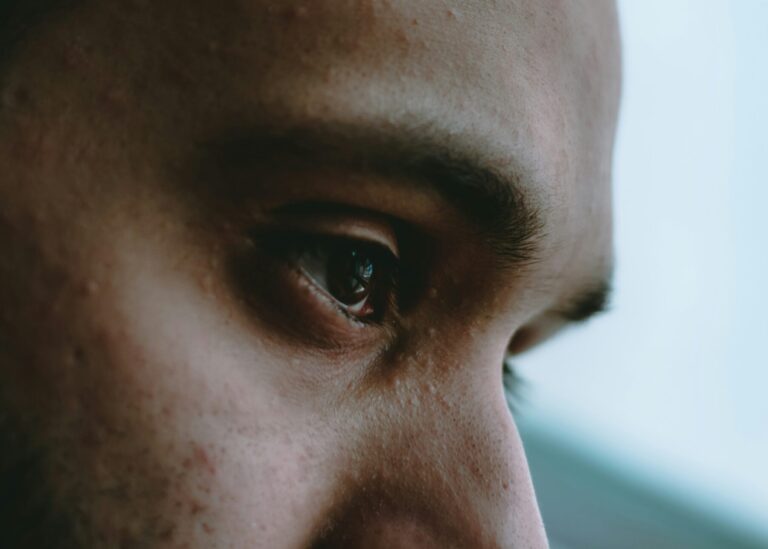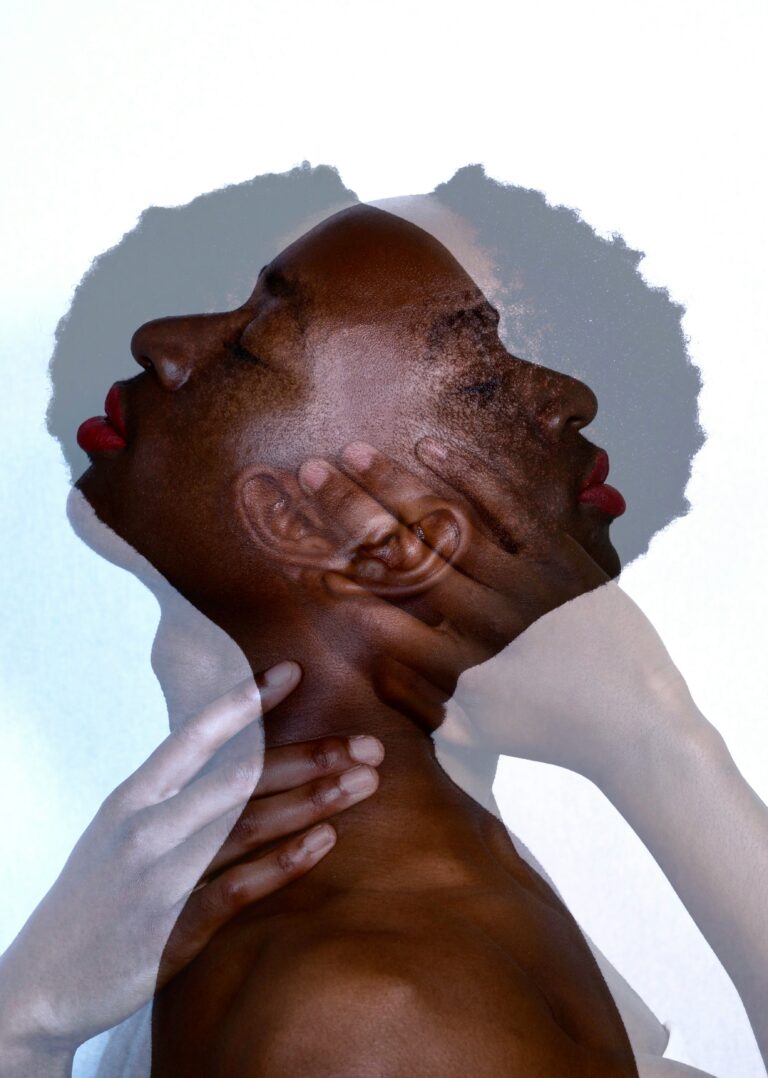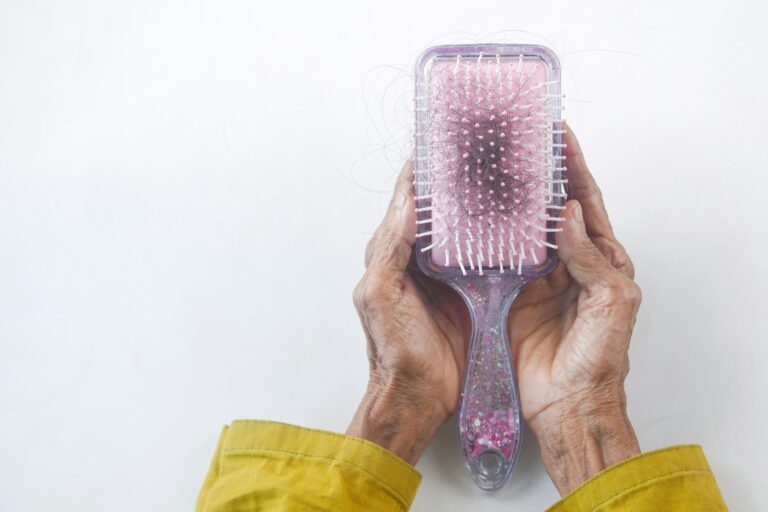Why You Get Dark Circles Despite Sleeping Well (Hidden Causes)
As you wake up in the morning and see yourself in the mirror, what you see are the dark circles surrounding your eyes. Why you get dark circles despite sleeping well is a question many people struggle with, and the answer isn’t always simple. Lack of sleep can be a common culprit, but it’s not always. There can be other underlying conditions leading to dark circles, like some allergies, nutritional deficiencies, lifestyle habits, or simply genetics. I’ll help you understand these causes, which will enable you to address the problem and come up with subtle solutions.
To read more health-related articles, visit https://healnology.com/
Why You Get Dark Circles Despite Sleeping Well
These can be some reasons you get dark circles despite sleeping well:
Genetic Factors You Can’t Control
Are your family members also struggling with those stubborn dark circles? That could be one of the reasons why you got those dark circles, too. If it’s written in your DNA, no matter how much rest you get, your eyes might appear deeper-set. The naturally thin skin under your eyes makes the blood vessels more visible, giving that area a bluish or purplish tint.
However, you can’t change genetics, but you can minimize their impact with proper skincare and lifestyle choices. Using sunscreen daily, staying hydrated, and applying eye creams with retinol or vitamin C can help thicken skin and brighten the under-eye area.
Check out our guide on the Best Affordable Personalized Skincare Routine for Glowing Skin.
According to Dr. Michele Green, a board-certified dermatologist, “Genetics plays a huge role in dark circles. Even with perfect sleep and diet, some people are predisposed to them.”
Source: American Academy of Dermatology
Aging and Thinning Skin Under the Eyes
Aging could be another reason for under-eye shadows. As we age, our body produces less collagen and elastin, which causes the skin to become thinner and less elastic, especially under the eyes, as it’s a delicate area. When that happens, blood vessels beneath the surface become more visible, creating a shadowy effect that looks like dark circles. Dermatologists often recommend retinol-based creams or professional treatments like fillers or laser therapy to restore volume and reduce the hollowed appearance.
Joshua Zeichner, Director of Cosmetic & Clinical Research in Dermatology, explains: “The thinning skin around the eyes reveals underlying blood vessels, creating the appearance of dark circles.”
Allergies and Sinus Problems
When there is allergy season and you notice your dark circles getting worse, then an allergy could be the reason to blame. This is because allergic reactions and sinus congestion cause blood vessels under the eyes to swell and dilate, leading to what’s known as “allergic shiners.” The pigmentation gets worse if you constantly rub your itchy eyes.
According to the Mayo Clinic, managing allergies with antihistamines, nasal sprays, or avoiding triggers can significantly reduce under-eye darkness.
Dr. Debra Jaliman, a NYC dermatologist, says: “Allergies dilate blood vessels under the skin, which makes dark circles more noticeable.”
Nutritional Deficiencies Behind Dark Circles
Another reason behind dark circles could be nutritional deficiencies, like:
Iron Deficiency and Anemia
Iron deficiency can cause your skin to look pale and dull, making dark circles even prominent. As iron plays a crucial role in carrying oxygen throughout the body, low iron levels cause less oxygen to reach your tissues, making your skin appear uneven. This is why people with anemia often notice persistent under-eye darkness.
If you suspect an iron deficiency, include foods like spinach, red meat, and lentils in your diet or ask your doctor about supplements.
Dr. Shilpi Khetarpal, dermatologist at Cleveland Clinic, notes: “When iron is low, hemoglobin levels drop, and the skin beneath the eyes may look bluish or dark.”
Read our guide on Beginner’s Guide to a Balanced Diet | Simple Nutrition Tips
Lack of Vitamin B12 and D
Low vitamin B12 levels cause fatigue, weakness, and noticeable dark circles because vitamin B12 supports healthy red blood cell production.
However, vitamin D, often called the “sunshine vitamin,” helps maintain healthy skin and boosts immunity. Low levels of Vitamin D may lead to dullness and poor skin health under the eyes. I would suggest you to spend more time in natural sunlight, eat fortified foods, eggs, and fish, or take supplements (under medical guidance) to help restore healthy levels.
A study in the Journal of Clinical and Aesthetic Dermatology found that “low B12 and vitamin D levels are linked to periorbital hyperpigmentation (dark circles).”
Poor Hydration and Mineral Imbalance
Another reason could be a lack of adequate hydration that your body needs. Dehydration can cause your skin to lose its plumpness, and the under-eye area can look sunken and shadowed, making dark circles appear worse.
Minerals like potassium and magnesium also play a role in fluid balance in your body. So mineral imbalance can worsen puffiness and discoloration. Aim to drink at least 8–10 glasses of water daily and eat hydrating foods like cucumbers, watermelon, and oranges. Adding coconut water to your diet can also help restore electrolytes naturally.
Dr. Mona Gohara, Associate Clinical Professor of Dermatology, states: “When the body is dehydrated, the skin around the eyes looks sunken and dark.”
Health Issues That Keep Dark Circles From Fading
There can be some underlying health conditions keeping you from getting rid of those stubborn dark circles, like:
Thyroid and Hormonal Changes
Dark circles can also be caused by thyroid problems. The thyroid is a vital gland in our body; if this gland is underactive (hypothyroidism), it can cause puffiness, fluid retention, and changes in skin tone under the eyes.
However, some hormonal changes that occur during pregnancy, menopause, or due to stress, can also worsen under-eye pigmentation. If your dark circles are accompanied by weight changes, fatigue, or hair loss, it’s best to consult a doctor and get thyroid tests done.
Dr. Amy Myers, functional medicine physician, says: “Hormonal imbalances, particularly thyroid issues, can contribute to persistent dark circles and under-eye bags.”
I’ve also differentiated between stress acne and hormonal acne in my article, Stress Acne vs Hormonal Acne: How to Tell the Difference, so if your skin is breaking out with dark circles, it might help you.
Chronic Stress and Anxiety
You know, stress doesn’t just affect your mind, but your skin as well. Cortisol is a hormone that increases with high stress levels, which in turn disrupts blood circulation and breaks down collagen. This results in dull skin that makes dark circles prominent.
Anxiety can also interfere with sleep quality, even if you spend enough hours in bed. As dermatologist Dr. Joshua Zeichner explains, “Stress management is as important for your skin as it is for your overall health.”
Learn more about “How to Manage Stress for Better Physical Health”.
Everyday Habits That Make Dark Circles Worse
Your dark circles can also be an indication of your daily habits that can worsen discoloration:
Screen Time and Eye Strain
This is the most common reason for persistent dark circles under the eyes. We spend hours on our screens without realizing how it‘s affecting our overall health. The time we spend on laptops, phones, or TVs puts a strain on our eye muscles. Over time, this leads to eye fatigue, dryness, and worsening discoloration under the eyes.
To protect your eyes, follow the 20-20-20 rule: every 20 minutes, look at something 20 feet away for 20 seconds. Using blue-light filters and lubricating eye drops can also help.
Smoking and Alcohol Consumption
To all the people addicted to smoking, quit it for your health, because nicotine in cigarettes restricts blood flow and reduces oxygen supply to the skin, while alcohol dehydrates the body and breaks down collagen. Together, they accelerate premature aging and pigmentation, making dark circles more prominent.
Quitting these habits not only benefits your overall health but also restores a more youthful, brighter appearance under your eyes.
Dr. Patricia Farris, dermatologist, says: “Lifestyle habits like smoking and drinking accelerate skin aging and worsen under-eye discoloration.”
Skipping Sunscreen and Skincare Neglect
The delicate skin under your eyes is highly vulnerable to sun damage, which can increase pigmentation and speed up aging. Not using sunscreen leaves this area unprotected, and neglecting a consistent skincare routine allows damage to build up.
Dermatologists recommend daily use of broad-spectrum SPF, even indoors, along with eye creams containing retinol, vitamin C, or hyaluronic acid to repair and protect the skin barrier.
Dr. Heather Rogers, dermatologist, explains: “UV exposure worsens pigmentation, so dark circles can persist even with sleep and hydration.”
Get our guide on “Best Affordable Personalized Skincare Routine for Glowing Skin.”
How to Reduce Dark Circles When Sleep Isn’t Enough
If you’re dealing with stubborn dark circles, you may be wondering: how can I reduce them?
Dietary Fixes and Supplements
The first and foremost is to take care of your internal health; you’ll see your external health getting better. Adding iron, vitamin C, and B12-rich foods to your diet helps correct deficiencies that make circles worse.
Leafy greens, lean proteins, nuts, and citrus fruits are excellent daily staples. If deficiencies are severe, a doctor may recommend supplements. Diet plays a bigger role than most creams and serums.
Get our guide on “Beginner’s Guide to a Balanced Diet”.
Skincare Ingredients That Help
Targeted skincare can significantly reduce dark circles over time.
Retinol thickens skin and boosts collagen.
Vitamin C brightens pigmentation.
Hyaluronic acid provides hydration and plumpness.
According to Healthline, consistent use of these ingredients can visibly improve under-eye darkness when combined with healthy habits.
Home Remedies vs. Medical Treatments
There are home remedies like cold compresses, cucumber slices, and green tea bags that can reduce puffiness and refresh tired eyes, but they are often temporary fixes.
For stubborn dark circles, dermatological treatments like chemical peels, fillers, or laser therapy offer longer-lasting results. Consulting a dermatologist helps you choose the right option based on whether your circles are due to pigmentation, thinning skin, or blood vessel visibility.
Final Thoughts
If you’ve ever asked yourself why you still get dark circles despite sleeping well, the answer may lie beyond just rest. Dark circles can be caused by genetics, vitamin deficiencies, allergies, thyroid problems, stress, or lifestyle habits like screen time and smoking. Tackling the root causes, from improving nutrition to addressing allergies and stress, is the key to lasting results.
Remember, your body uses dark circles as a signal. Instead of hiding them with makeup, pay attention to what they’re telling you.
As Dr. Joshua Zeichner, dermatologist at Mount Sinai Hospital, explains: “Dark circles are not always about sleep deprivation. They can reflect underlying health issues, lifestyle choices, or genetic predisposition.”







